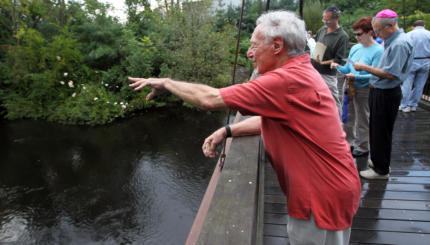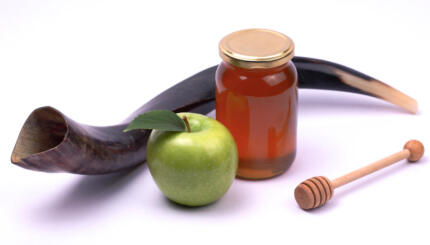What will our Jewish lives look like in the coming year? As Covid-19 has proven time and again, trying to predict the future is an exercise in futility. And so this pandemic has called on us to live with uncertainty, with a sense that the future is unpredictable and even anxiety-inducing. But it’s also a blessing. And one of the great themes of Rosh Hashanah.
The biblical passage we read on the Jewish new year is enigmatic at best. On what Jewish tradition teaches is the anniversary of the creation of the world, perhaps the opening verses of Genesis might be appropriate. Or maybe something about the shofar, the ram’s horn we blow on the holiday to rouse us to repentance. But the Talmud prescribes that we read Chapters 21 and 22 of Genesis, which tell of the banishment of Hagar from the house of Abraham and the binding of Isaac. Stirring as these stories may be, what is their connection to Rosh Hashanah?
On reflection, these two chapters offer a kind of testimony against those who subscribe to the notion of certainty. Over and again, we find characters absolutely certain of a particular conviction. And over and over again, fate conspires to foil their expectations. What happens next in the narrative is never a fait accompli.
Sarah is convinced beyond a shadow of a doubt that she is condemned to live a life of childlessness. And yet she conceives.
With your help, My Jewish Learning can provide endless opportunities for learning, connection and discovery.
Abraham is certain that Ishmael, his firstborn son, will become the heir to his spiritual legacy. But God has another plan.
Without water in the blazing heat of the desert, Hagar knows her son will perish. She’s so sure of this that she steps away from Ishmael so as to avoid watching his demise. Then she opens her eyes and discovers an oasis. She and her son will live to see another day.
And finally, in the story of Abraham’s willingness to sacrifice his son, Abraham is so convinced he is carrying out God’s will that an angel must call out to him twice — “Abraham, Abraham” — before he is willing to stop short of sacrificing Isaac.
These stories offer a profound message in the midst of this pandemic. Like the biblical characters themselves, we too have been assaulted by feelings of resignation and helplessness. To those who would succumb to those feelings, Rosh Hashanah constitutes a vociferous voice of protest. Certainty is the province of the past. The present and the future are always open. They are, almost by definition, unpredictable. A new year means a new promise.
The uncertainty of the future may set us on edge, but it also means a whole constellation of possibilities are open before us.
Because of this perceived scourge of uncertainty, there’s been a tendency to put our lives on hold. Jewish tradition has nothing against waiting. The very first mishnah in Avot cautions us to be deliberate in judgment — to wait rather than rush headlong into an impulsive decision. After the Exodus, the Israelites waited 40 long years before they tasted the fruit of the Promised Land. For two millennia, we waited to come home to an Israel we could call our own.
It’s when we mistake waiting for deferral that we betray our tradition.
Around 500 years ago, the Chief Rabbi of Egypt, David ibn Zimra (1479-1573), received an unusual query. A Jewish prison inmate had made a plea for clemency to his local governor and was granted a one-day furlough. The date of the furlough was left to the discretion of the prisoner. What day, the inmate wondered, should he choose.
The Chief Rabbi’s advice was unequivocal: Today. Rather than wait, he suggested that his correspondent seize the moment to accomplish everything he could. And it’s sound advice for each of us on Rosh Hashanah. The tragedies or traumas of yesterday need not dictate the decisions we make today. When the sun sets on the 30th of Elul, the moment marks not just the beginning of a new year; it marks the beginning of a new day. Let’s make the most of it.



